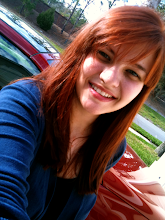Rachel Miles
Jeannina Perez
WST 3015 (Introduction to Women’s Studies)
21 February 2010
Activism
This week, my work involved promoting the project. Rebecca created the Facebook group and online petition as planned, and I sent group invites/information to several of my Facebook friends who attend or are somehow a part of the UCF community to make them aware of our efforts.
Reflection
The reading I found most interesting this week was Khan’s “The All-American Queer Pakistani Girl.” In it, Khan discusses her struggle to unite her homosexual identity and her previously-rejected Pakistani one. Because of immense pressure from her family (particularly her mother) and larger society, which, especially in South Asia, “is rampant with homophobia—so much so that most people In South Asia literally don’t have words for homosexuality” (Khan 179)—she has, to this point, embraced being a lesbian member of the LGBT community at the expense of recognizing at all her connection to the Pakistani community. This is, I feel, similar to the experiences of the transgendered community, who are pressured by society to conform to gender identities that may completely contradict their understandings of themselves. To gain social acceptance, they may reject their connections to the LGBT community both before and after transitioning, and in doing so reject a vital part of themselves.
Reciprocity
Because this is my first time being a part of any LGBT-related activism, sending out the Facebook group invites was really my way of “coming out” in support of this community. It was by no means on the same level as coming out as homosexual or transgendered, but it was still a little nerve-wracking, as many of the people I sent invites to were people I knew to be strongly Christian and/or conservative. I did receive some hostility, but, sadly, that is to be expected when dealing with LGBT issues. For me, though, the significant part of this was finally declaring myself an open supporter of something I had kept quiet about in high school because I did not want to risk social alienation. It was extremely freeing to finally, irrevocably become open about something that has, as my feminist identity has developed and my family connections have made it increasingly relevant to my personal interests, become a vital part of how I identify myself from political, individual, and activist perspectives.
Works Cited
Khan, Surina A. “The All-American Queer Pakistani Girl.” Women’s Lives: Multicultural Perspectives. Ed. Gwyn Kirk and Margo Okazawa-Rey. New York: McGraw-Hill, 2010. 178-180. Print.
Sunday, February 21, 2010
Subscribe to:
Post Comments (Atom)

No comments:
Post a Comment